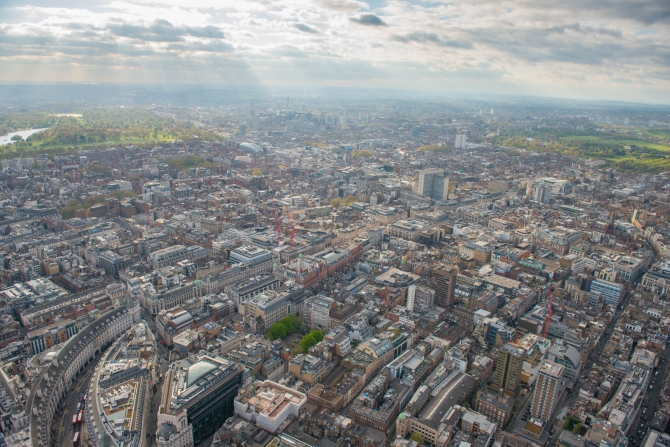An alliance of leading London property owners has today announced the launch of a unique initiative to promote green infrastructure in the capital.

The Wild West End project, launched by The Crown Estate, Grosvenor Britain & Ireland, the Howard de Walden Estate and The Portland Estate, is the first city centre ecology project in the world to be conceived and driven by an industry collaboration of this type.
Wild West End has the support of the Mayor of London and the London Wildlife Trust, and both have agreed to provide advice, promote the objectives of the initiative and work alongside the partners on their individual green infrastructure schemes. Technical advice and support will be provided by engineering consultancy Arup.
The first phase of Wild West End will see The Crown Estate create a green space equivalent to one and a third times the size of the Wembley Stadium football pitch across its 8 million sq ft of property holdings in Regent Street and St James’s, linking Regent’s Park to St James’s Park.
While The Crown Estate presses ahead with this scheme, other property companies will be will be working on their own plans to expand the project further. The ultimate aim is to create an extensive network of green spaces which will act as stepping stones between the West End’s large areas of parkland.
Mayor of London Boris Johnson said: “London’s population is at an all-time high, so while we need to build new homes and improve transport infrastructure, we also need better quality green spaces.
“There is absolutely no doubt that parks and green spaces in urban areas improve people’s wellbeing and quality of life. Through the Wild West End we look forward to transforming a part of the city for thousands of residents, workers and tourists to enjoy even more.”
James Cooksey, Head of Central London at The Crown Estate, stressed the need for careful consideration of the impact of greater urbanisation on plants and wildlife in our major cities.
“That’s why we’ve launched the Wild West End,” he explains. “Along with our partners, we’re seeking to ensure that the millions of shoppers, workers and tourists that come to the West End’s densely packed urban environment each week, benefit from greater biodiversity by making space for the plants, birds and bees that form a crucial part of the ecosystem of London.”
Gordon Scorer, Chief Executive of the London Wildlife Trust, believes the launch of Wild West End is a ‘fabulous step’ which will demonstrate how wildlife can flourish in busy city centres. “We are keen to play our part in realising its ambitions,” he added
Research shows that cities retain only around 8 per cent of native bird species and 25 per cent of plant species compared to undeveloped areas. The Crown Estate’s ‘green corridor’ will seek to redress the balance through the integration of street level and rooftop gardens, and the installation of bird and bat boxes, beehives and green walls.
It is also expected that Wild West End will improve the air quality in area, after the introduction of green roofs across 10 per cent of the buildings in Chicago removed 17,400 mg of nitrogen dioxide each year.
Research also suggests that the asthma rate among children aged for to five falls by 25 per cent for every additional 343 trees per sq km, and Chicago estimates that its green roof investment has saved a figure between £17 million and £65 million in public health spending annually.